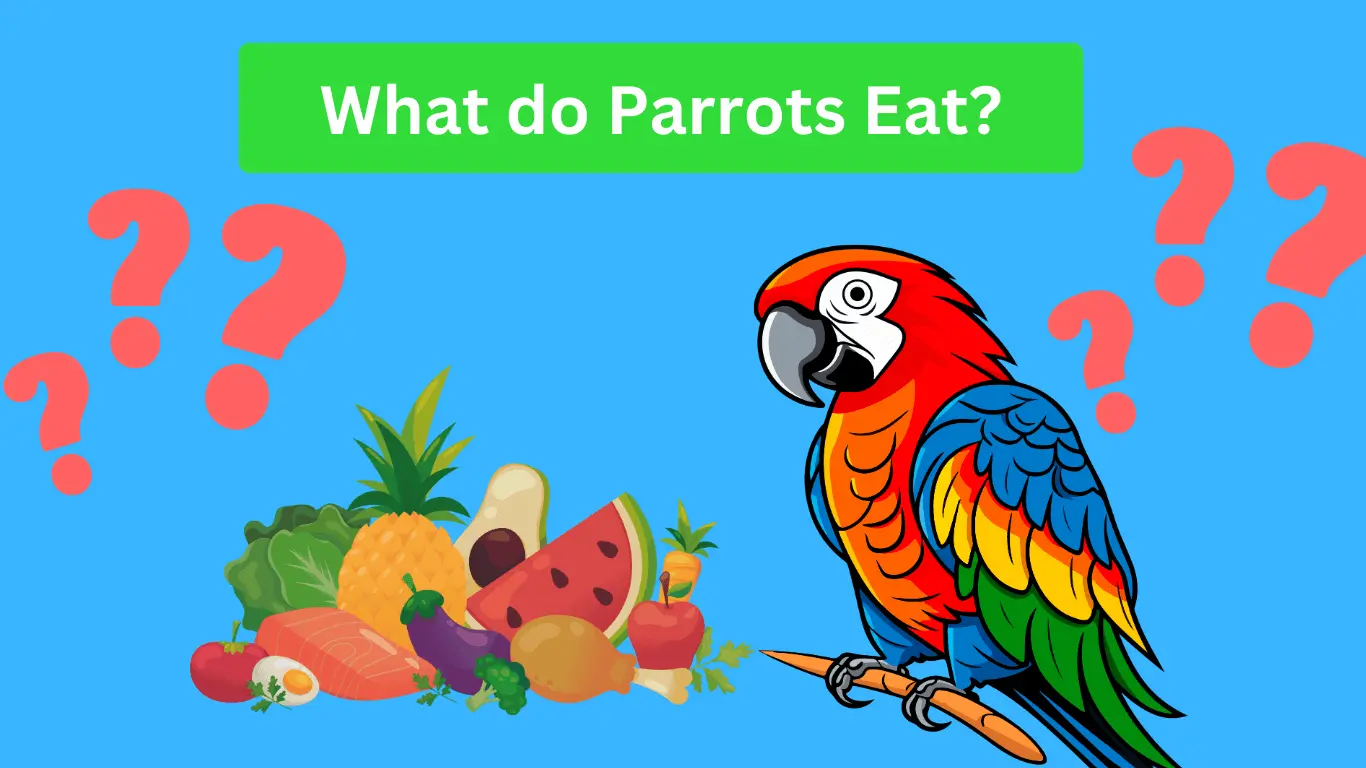Choosing a parrot’s diet is an important task for the parrot owner because if the parrot eats something that is harmful to their health and causes them to suffer from various diseases, then you can protect your parrot. Feed those things that are good for birds’ health and that they can eat with pleasure and can give various benefits and keep his physical health healthy and keep him away from all kinds of diseases. You can read more details below about What do parrot eat?
There are different types of questions for the owner of parrots. Read the details below about all of them. They are all fruits that can be digested easily and what are their benefits? Can Parrots eat vegetables? Which vegetables are easily digested by Parrots? How to Serve Vegetables to My Parrots? Can Parrots safely consume nuts and seeds?
Parrots Safe Fruits list
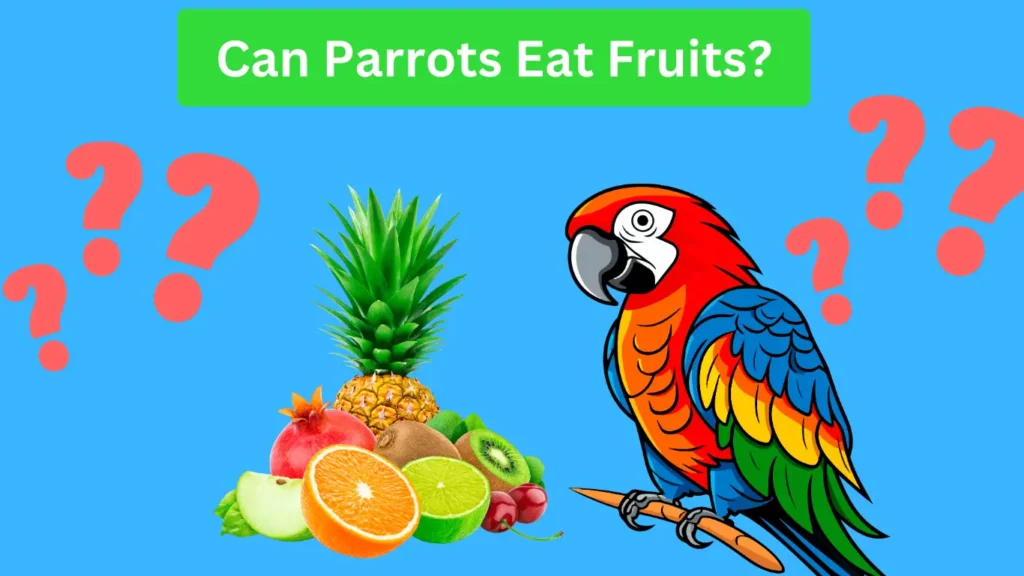
Here are some of the best fruits that are both safe and nutritious for parrots:
Apples
Parakeets enjoy taking their meals from apples most particularly. They contain fiber and vitamin C. Just ensure that the seeds have been dipped because the seeds are poisonous to birds due to the presence of cyanide.
Bananas
Bananas differ from many of the fruits above in that they are not only soft and easy to digest, but they also provide potassium and vitamin B6 for your parrot’s diet.
Berries
Parrots love berries! The strawberries, blueberries, raspberries, and blackberries are all filled with antioxidants as well as vitamin C and are safe to eat your parrots in 2024.
Mangoes
Mangoes are sweet and soft fruits that contain vitamin A which is very nutrias for the eyes. So what does a parrot love? Yes, they have a fondness for their tropical flavor!
Papayas
Folate-rich fruit includes papaya, also a vitamin C-wealthy fruit that does not make the Raw, they can be chopped into small pieces just the way they are chopped for salads and other similar dishes.
Grapes
Apparently, grapes are very helpful in providing hydration and also contain natural sugars that make them part of the parrot’s favorite foods. Though they contain beneficial fats, they are rich in sugar and hence should be consumed in small proportions.
Pineapple
Pineapples give the body vitamin C and Bromelain, an enzyme that assists in digestion. It is recommended that you should peel of the hard skin before consuming it.
Exotic Fruits That Parrots Love
Parrots eat some Exotic fruits that you should give to your parrots.
Kiwi
Kiwis contain high amounts of vitamin C and are also rich in antioxidants. That is, they are juicy and entertaining to play with for the parrots to bite on
Dragon Fruit
Dragon fruits are nutritional fruits for parrots that cover many essential nutrients for conures health.
Pomegranates
Pomegranates are tasty fruits for birds which provide many healthy benefits for conures. Parrots love this type of fruit.
Guava
Both raw and ripe guavas contain fiber and vitamin C. They are sweet and a bit sour in taste which makes them to be demanded by many parrots due to the juicy aspect naturally.
Fruits You Should Avoid Feeding Parrots
While many fruits are safe, there are a few you should never feed to your parrot:
- Avocados
- Rhubarb
- Citrus Fruits (in excess)
Vegetables that Parrots Eat
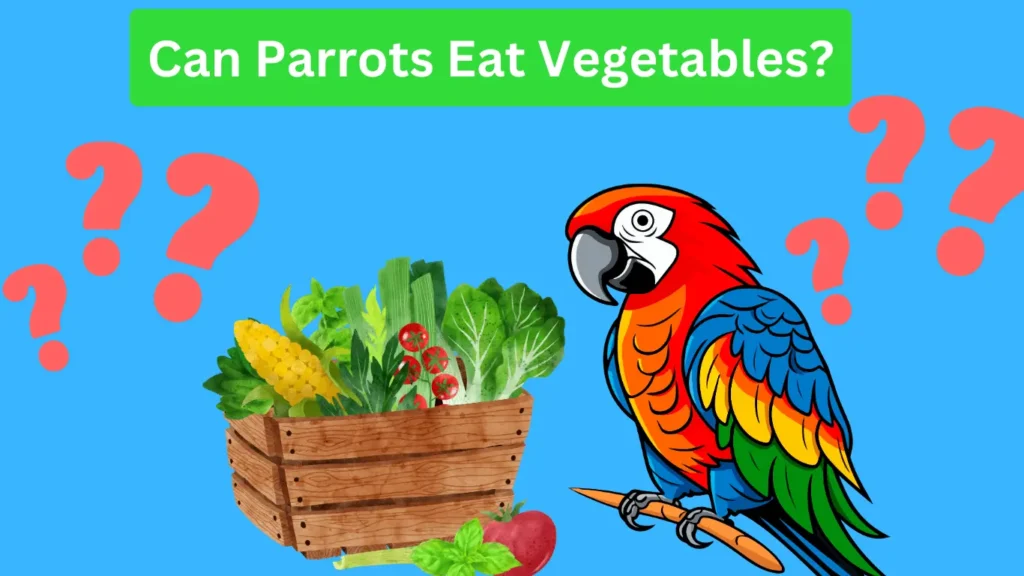
Leafy Greens
- Spinach: Spinach is a leafy green vegetable that contains iron and calcium.
- Kale: Kale is a beneficial vegetable for birds that contains vitamins A, C, and K.
- Swiss Chard: This vegetable contains nutrients that are good for parrot food.
- Romaine Lettuce: Good water and fiber can be eaten often but is not as rich in nutrients as other greens.
Root Vegetables
- Carrots: Rich in vitamin A the nutrient responsible for healthy eyes and bright coloration of the feathers.
- Sweet Potatoes: It is an excellent source of beta-carotene and fiber, but have to be well cooked or preferably mashed.
- Beets: Particularly rich in antioxidants, beets can be eaten raw or steamed, but the tops are high in oxalic acid.
Cruciferous Vegetables
- Broccoli: Vitamin C and K rich, it can be eaten fresh or blanched briefly.
- Cauliflower: Affords a good portion of fiber and vitamins, another nice one for variety.
- Brussels Sprouts: They are rich sources of antioxidants, and fiber though they should be included sparingly as they cause gas.
Peppers
- Bell Peppers: Rich in vitamin C and everyone’s darling antioxidant, they can be fed with the skin on, raw or cooked. This is made better by their natural sweet taste, and satisfying crispiness that people always long for.
- Chili Peppers: I found out that parrots can consume chili peppers and do not feel spiced up as humans would since they feel spiced differently.
Squashes
- Zucchini: A popular vegetable used in salads and low in calories; can also be boiled or fried.
- Butternut Squash: Rich in vitamin A, what great news for strengthening the immune system of your parrot along with giving it energy.
Other Safe Vegetables
- Green Beans: These contain protein and fiber and should be eaten by lightly steaming them.
- Peas: A source of proteins and vitamins especially for people who take plant-based meals during meal preparation.
- Cucumber: More than ninety percent water, cucumbers ensure that your parrot drinks adequate water and should be fed as a snack.
- Corn (on the cob or kernels): Maize is among the favorite foods for most of the parrots and these have high carbohydrates; therefore they should be included in the diet in small portions.
Popular Seeds Parrots Can Safely Eat
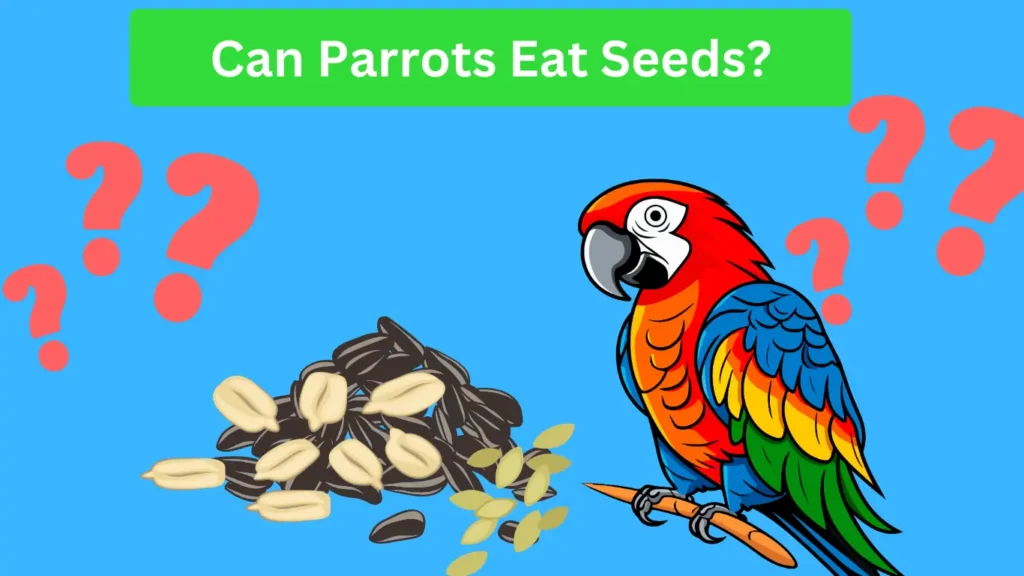
- Sunflower Seeds: Parrots love sunflower seeds but it is better to feed them occasionally. It is known that they are rather fat and their overfeeding can result in putting on weight.
- Safflower Seeds: Safflower seeds are high in fat and there is a better healthier version which is the safflower seeds that parrots enjoy fed to them.
- Millet: Millet is typically consumed as part of birdseed and the product is virtually fat-free and nutritious. Parrots love to eat the seeds: P.
- Hemp Seeds: Hemp seeds contain omega-3 fatty acids that are essential for the parrot skin and feathers accordingly. While they are not a bad food choice in terms if health because they contain fat which should be consumed in moderation.
Best Nuts for Parrots
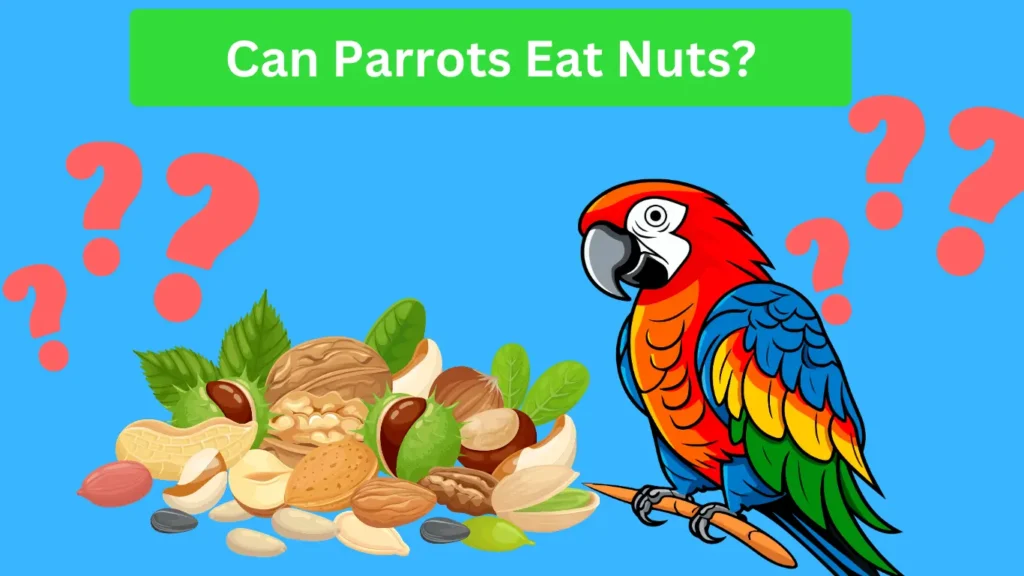
- Almonds: Almonds are healthy snacks for parrots that provide fiber and vitamins.
- Walnuts: Walnuts are a good addition to parrot diets they provide strength to parrots’ feathering and skin.
- Cashews: Cashews are good nuts for parrots that provide many protein and essential health benefits. This is an amazing thing that your parrot safely ear cashews.
- Pistachios: Pistachios are actually nuts, but small ones, so parrots can easily open them and eat them. Besides that, they contain good fats.
- Hazelnuts: Hazel nuts for that chirpy parrot are palatable, and carry Vitamin E and healthy fats in equal measure.
How to Serve Your Parrots?
Fruits
- Wash Thoroughly: Wash all fruits properly in order to get rid of the pesticides and other chemicals that might be found in fruits.
- Cut into Small Pieces: You should multiply chop fruits so that they are in small pieces that can easily be consumed by your parrot.
- Variety: You should provide fresh fruits like apples, berries, oranges, bananas, and melons among others.
- Remove Seeds/Pits: Remember to remove the seeds or pits as these are bad and can even be fatal.
Vegetables
- Fresh and Clean: The vegetables should also be washed to try and eliminate the dirt and other chemicals on them as much as possible.
- Chop or Shred: Slice them up or chop them into tiny portions in case they are large enough so that children can chew easily.
- Cooked vs. Raw: It is also important to decide whether you will feed your parrot cooked vegetables, such as steaming or a light boil or raw. Parrots, like other pets, also need proper nutrition and find what they prefer most.
- Offer a Rainbow: An example is greeny/fatty vegetables like kale, and spinach, orange colors like carrots, and bell peppers, or purple like broccoli.
Seeds
- Quality Matters: Select good quality seeds that are preferably the special recipe for your parrot’s breed will also be suitable.
- Mix it Up: It is better to offer a variety of seeds that is changing between different seeds at least during different meals, as it will be nutritionally more balanced.
- Limit Quantity: Seeds should be eaten but not eaten only; most of them contain fats.
Nuts
- Unsalted and Raw: Provide shelled nuts, such as almonds, walnuts, and hazelnuts without the addition of salt.
- Chop or Whole: It is also important whether your parrot is small or large or has a preference toward whole or chopped nuts.
- Moderation: Since nuts contain many fats, they should be taken occasionally; taking large quantities may lead to obesity.
Conclusion
Parrots diets are not that easy though you have to ensure that you are giving them fruits, vegetables, seeds, nuts, and protein all in the appropriate measure and then you will see your bird living a long healthy life. It is always advisable to seek the services of a parrot specialist veterinarian for an advised recommendation but taking the following general factors into consideration, your parrot will definitely be a happy parrot and well-fed.
FAQS About What Do Parrot Eat?
What foods do parrots eat?
Parrots eat many types of foods you can read above which food is good for your parrots.
What is a parrot’s favorite fruits?
Parrots like many fruits like apples, bananas, oranges, and other fruits which taste good.
Does a parrot eat chilies?
Yes, many parrots eat chilies because it is spicy but if you give them in low moderation amounts.
What do parrots eat and drink?
Parrots eat safely eat many types of foods which you can read above in this guide and drink many Juices.
Table of Contents

Abubakr is a passionate parrot enthusiast based in Pakistan. He shares his life with his vibrant parrot, Peto, and is dedicated to understanding parrot nutrition, behavior, and training. Through his experiences with Peto, Abubakr aims to gain a deeper insight into the needs and personalities of parrots and to share his knowledge with fellow parrot lovers. With a focus on the nutrition of conures, Abubakr is excited to connect with like-minded individuals and learn from their experiences.
